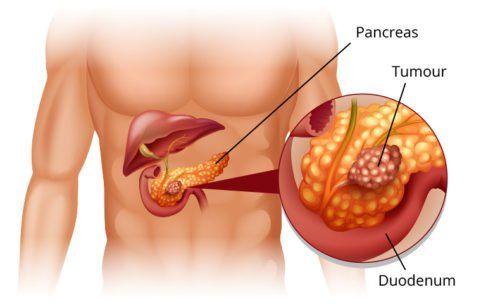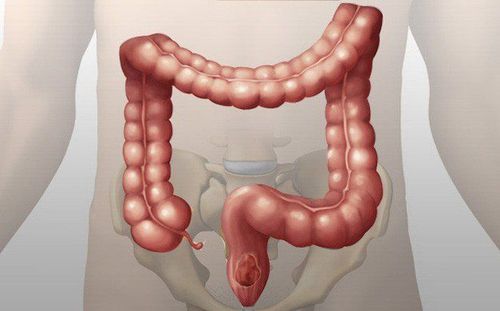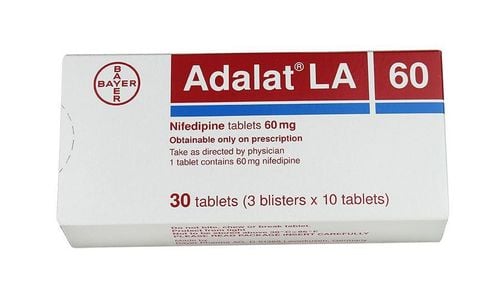This is an automatically translated article.
There are many adults with prediabetes who don't know it. So is prediabetes dangerous? How does treatment help control the condition?1. Prediabetes and risk of type 2 diabetes
Prediabetes is a warning sign that you're at increased risk for type 2 diabetes. There are many things you can do to prevent or delay developing type 2 diabetes by improving your lifestyle and return blood sugar to normal. However, it is important to acknowledge that prediabetes is a serious health condition and it increases the risk of developing heart-related diseases and stroke.
Tiền đái tháo đường là dấu hiệu cảnh báo bạn có nguy cơ cao mắc bệnh tiểu đường loại 2
2. Is prediabetes dangerous?
The effects of diabetes on the body are gradual and can often progress without warning. Over time, having too much glucose (sugar) in the blood can damage several organs. These are often called "complications" of diabetes, and common complications include:Damage to the heart and blood vessels: Type 2 diabetes can increase your risk of developing cardiovascular disease , including atherosclerosis, stroke, peripheral artery disease, and kidney disease. Causes nerve damage: Over time, high blood sugar can damage the nerves, a condition known as diabetic neuropathy. This can lead to numbness in the fingers, hands, toes, or feet, or tingling, burning, or soreness that often begins in the fingers or toes and spreads upward. Symptoms of this nerve damage can also include vomiting, diarrhea, constipation, problems with sexual function, dizziness, and other symptoms. Causes kidney damage: The kidneys are important for filtering the blood. Over time, diabetes can damage them so that they no longer work as well, requiring dialysis or a transplant. Causes eye damage: Damage to blood vessels in the eye can eventually lead to blindness as well as increase the risk of cataracts and glaucoma. Causes Foot Damage: The feet are also susceptible to nerve and blood vessel damage from prolonged high blood sugar. Small cuts and blisters can lead to ulcers, infections, and amputation in severe cases. Causes skin and mouth problems: Diabetes can increase your risk of skin infections as well as mouth infections and gum disease. Causes osteoporosis: Osteoporosis is a disorder that causes your bones to become brittle and break easily. People with type 1 diabetes have an increased risk of osteoporosis. Alzheimer's disease: Poor blood sugar control may have some effect on the risk of developing Alzheimer's disease later in life. The reason why is still unknown, but brain cells are fueled by glucose, and when cells can't access the necessary fuel supply, brain cells can become damaged.

Theo thời gian, có quá nhiều glucose (đường) trong máu có thể làm hỏng một số cơ quan
3. Pre-diabetes and kidney problems
Prediabetes describes the condition of a person who is on track to develop diabetes. Prediabetes is the new name for blood sugar (glucose) levels that are higher than normal but not high enough to be diagnosed as diabetes.Although diabetes is not a complete flare-up, high sugar levels in prediabetes can cause problems throughout the body. One of the main organs that can be damaged is the kidneys. According to research, people with prediabetes often have undetected chronic kidney disease. In this large study, more than a third of people with prediabetes were found to have two signs of kidney disease that are protein in the urine (called albuminuria). Abnormal albuminuria and decreased estimated glomerular filtration rate (eGFR). This is a measure of how well the kidneys are working, and the eGFR indicates the stage of kidney disease.
In people with prediabetes, the stage of chronic kidney disease is as advanced as in people with diabetes. Many people with prediabetes or diabetes are found to have stage 3 or 4 chronic kidney disease. There are 5 stages of chronic kidney disease. When the disease reaches stage 5, the patient will need kidney replacement therapy, possibly a transplant or dialysis.
To protect the health of everyone, every home, Vinmec International General Hospital always deploys a screening package for diabetes and dyslipidemia to help detect pre-diabetes early and classify it accurately. type of diabetes, develop a nutritional regimen, monitor to minimize the risks and complications caused by diabetes.
Using the screening package for diabetes and dyslipidemia at Vinmec, patients will receive:
Endocrine CK examination (with appointment) Total urinalysis (by automatic machine) Quantitative Glucose Quantitative HbA1c Quantitative Uric Acid Quantification of Cholesterol Determination of HDL-C (High density lipoprotein Cholesterol) Determination of LDL-C (Low density lipoprotein Cholesterol) Determination of Triglycerides Determination of Urea Determination of Creatinine Measurement of AST Activity (GOT) Measurement of ALT Activity (GPT) Measurement of GGT activity (Gama glutamyl Transferase) Quantification of MAU (Micro Albumin Arine) Echocardiography, transthoracic pericardium, Normal ECG, Carotid Doppler ultrasound, Transcranial Doppler (carotid) Arterial Doppler ultrasound, Lower extremity veins (Bilateral lower extremity arteries) If you need consultation and examination at Hospitals of the national health system, please make an appointment on the website for service
Please dial HOTLINE for more information or register for an appointment HERE. Download MyVinmec app to make appointments faster and to manage your bookings easily.
References: kidney.org, heart.org, diabetes.org.uk, cdc.gov












